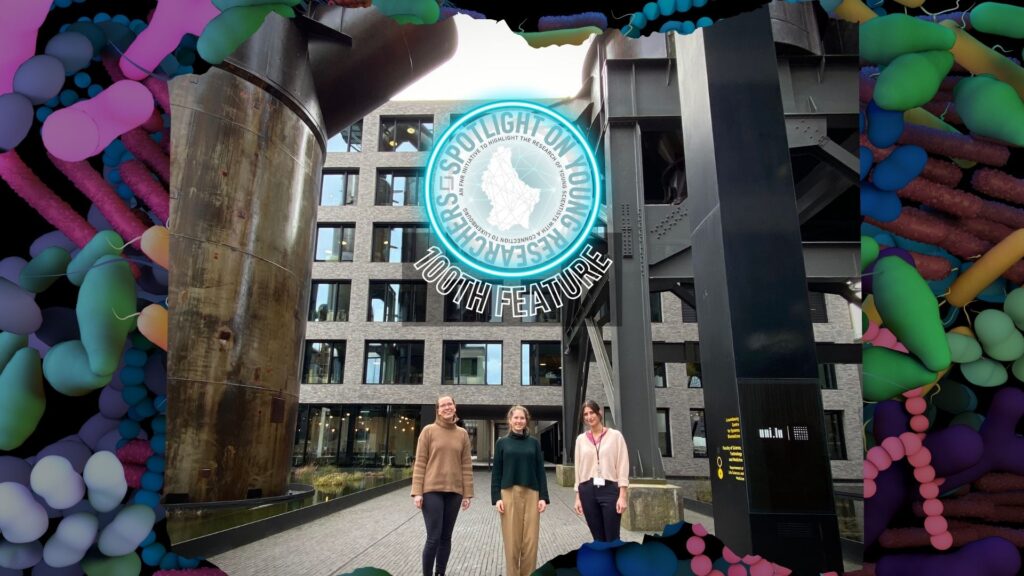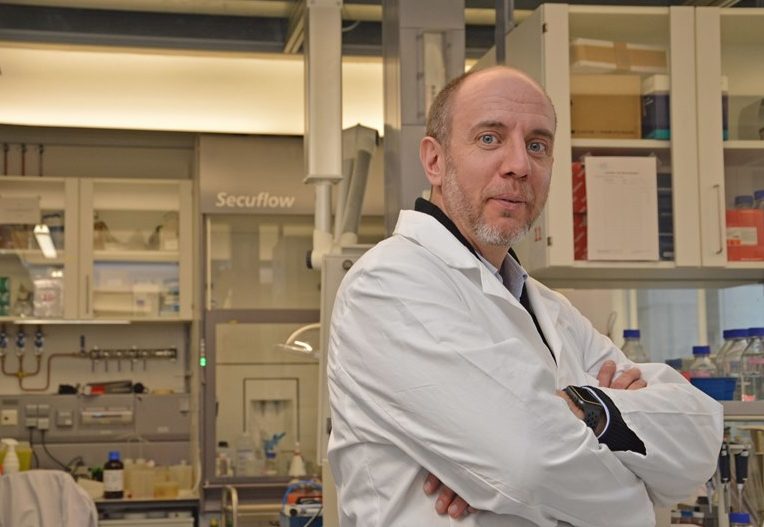FNR ATTRACT Fellow Prof Dr Paul Wilmes from the University of Luxembourg’s LCSB has secured a Consolidator grant from the European Research Council (ERC) for his ExpoBiome project. Wilmes is the third FNR ATTRACT Fellow to secure a prestigious ERC grant since 2015.
Prof Wilmes, a Luxembourg national, returned to Luxembourg from the University of California, Berkeley in the United States in 2010 in the framework of the FNR ATTRACT Programme. Associate Professor of Systems Ecology at the Luxembourg Centre for Systems Biomedicine (LCSB) of the University of Luxembourg, he heads the Eco-Systems Biology research group (Wilmes Lab). Paul Wilmes was the 2018 winner of the Grand Prix en sciences biologiques de l’Institut Grand Ducal. In 2017, together with Pranjul Shah, he won two FNR Awards, one in the category Research-Driven Innovation and one in the category Outstanding Scientific Publication. Over the years, Wilmes has secured funding from various FNR funding instruments – ATTRACT, CORE, INTER, PoC, and PRIDE.
Wilmes’ main research focus is on using Systems Biology approaches to identify key functionalities of microbial communities including human-associated microbiota. With his team, Wilmes has more recently studied microbiome-host molecular interactions. In this context, his group has pioneered the development of a microfluidics-based in vitro model of the human-microbial gastrointestinal interface called HuMiX.
Paul Wilmes was recently interviewed for a National Geographic feature on the future of medicine and has been recognised as one of the world’s most influential researchers.
Delighted that my @ERC_Research Consolidator Grant (#ERCCoG) will be funded. Looking forward to unraveling the “ExpoBiome” over the next five years. @uni_lu @FnrLux #ResearchLuxembourg pic.twitter.com/960aeC7pE3
— Paul Wilmes (@MicroSysEco) December 18, 2019
ExpoBiome: Uncovering causal relationships between the gut microbiome and the immune system

The ExpoBiome project aims at deciphering the impact of exposures from the gut microbiome-derived molecular complex in human health and disease. The human gut microbiome is a complex ecosystem, which contributes essential functions to human physiology. Changes to the microbiome are associated with several chronic diseases characterised by inflammation, including neurodegenerative and autoimmune diseases. Microbiome-derived molecules comprising nucleic acids, (poly)peptides and metabolites are present at high levels in the gut but have so far eluded systematic study. This gap in knowledge is limiting mechanistic understanding of the microbiome’s functional impact on chronic diseases such as Parkinson’s disease and rheumatoid arthritis. With the ExpoBiome project, Wilmes and his team will for the first time integrate a combination of advanced high-resolution methodologies with HuMiX-based experiments to comprehensively identify the constituents of this molecular soup and their impact on the human immune system. By providing mechanistic insights into the molecular basis of human-microbiome interactions, the project will generate essential new knowledge about causal relationships between the gut microbiome and the immune system. By facilitating the elucidation of currently unknown microbiome-derived molecules, it aims to identify new genes, proteins, metabolites and host pathways for the development of future diagnostic and therapeutic applications.
ERC grants and Luxembourg
Prof Dr Paul Wilmes is the third researcher with an FNR ATTRACT grant who has secured a grant from the ERC. In 2015, Prof Massimiliano Esposito (University of Luxembourg) secured an ERC Consolidator grant for his work on nanosystems thermodynamics. In 2017, Prof Ines Thiele (LCSB, University of Luxembourg at the time) secured an ERC Starting grant for her work on human metabolism.
“Not just one, but two Luxembourg-based scientists secured an ERC Consolidator grant this year – this is proof of the high calibre of both the science and research systems in Luxembourg. Additionally, the fact that Paul Wilmes is the third scientist supported by the FNR’s ATTRACT programme to secure a highly competitive grant from the European Research Council in just four years is testament to the high quality of the science supported by our ATTRACT programme.” – Marc Schiltz, FNR Secretary General
More than 10 ERC grants have been awarded to Luxembourg-based scientists. Nicolas Boscher from the Luxembourg Institute of Science and Technology (LIST) also secured an ERC Consolidator grant in the same Call as Prof Wilmes.





















